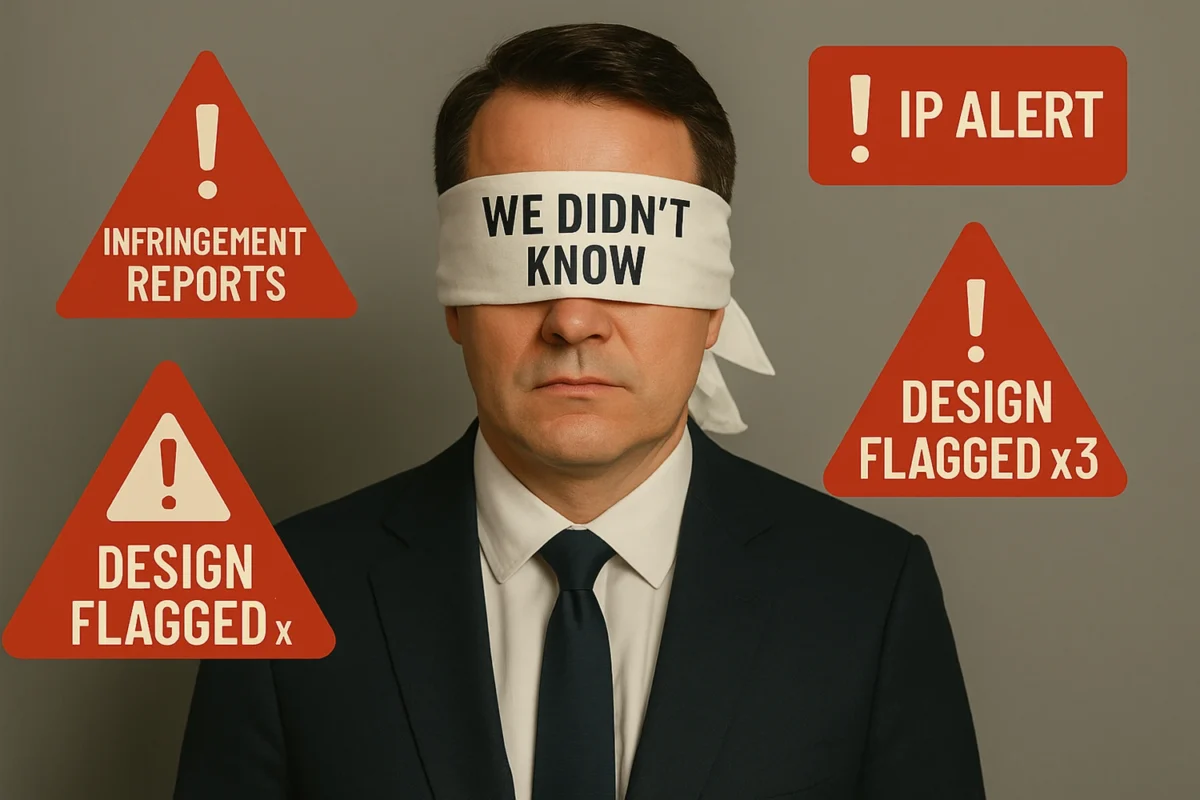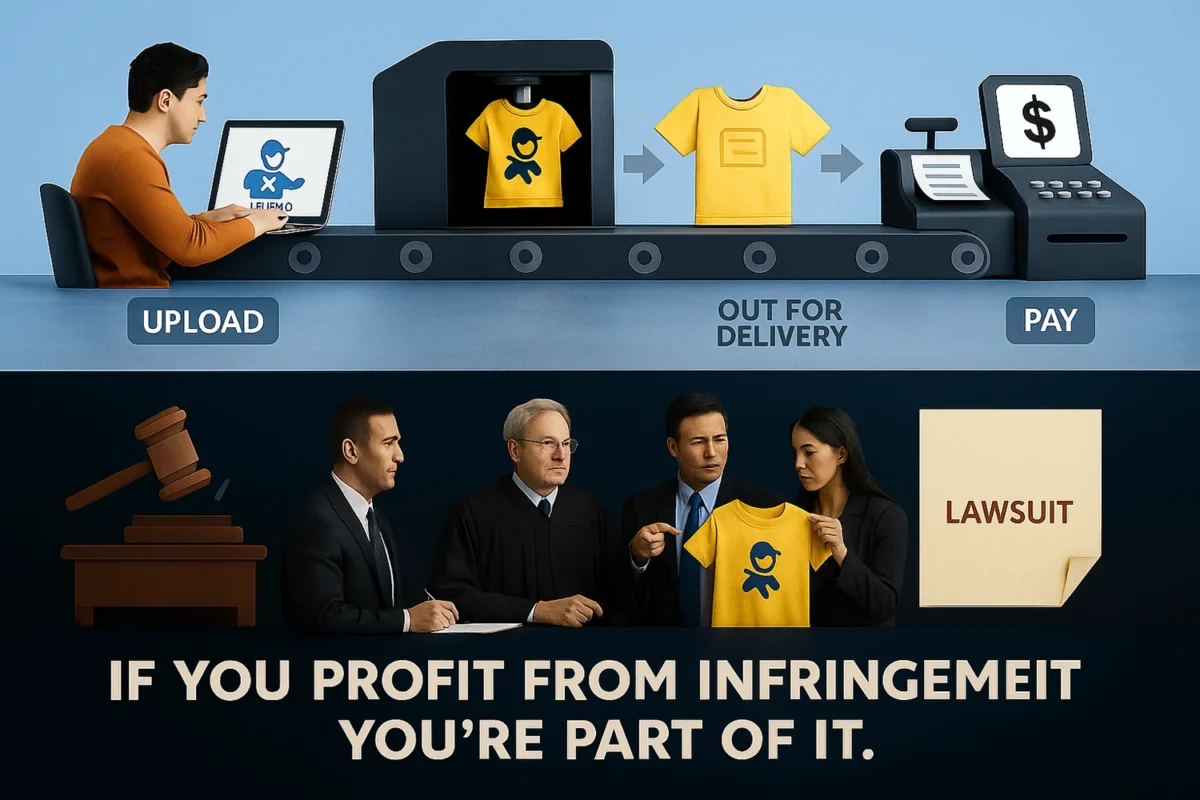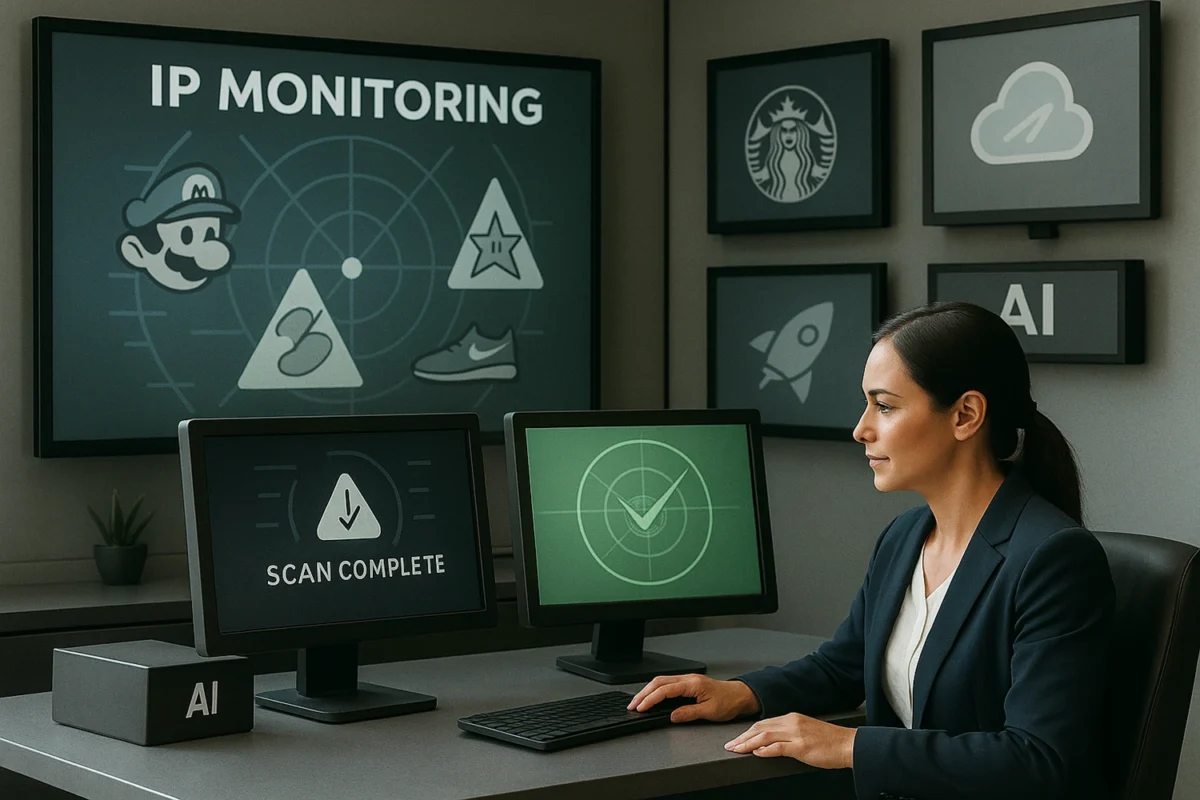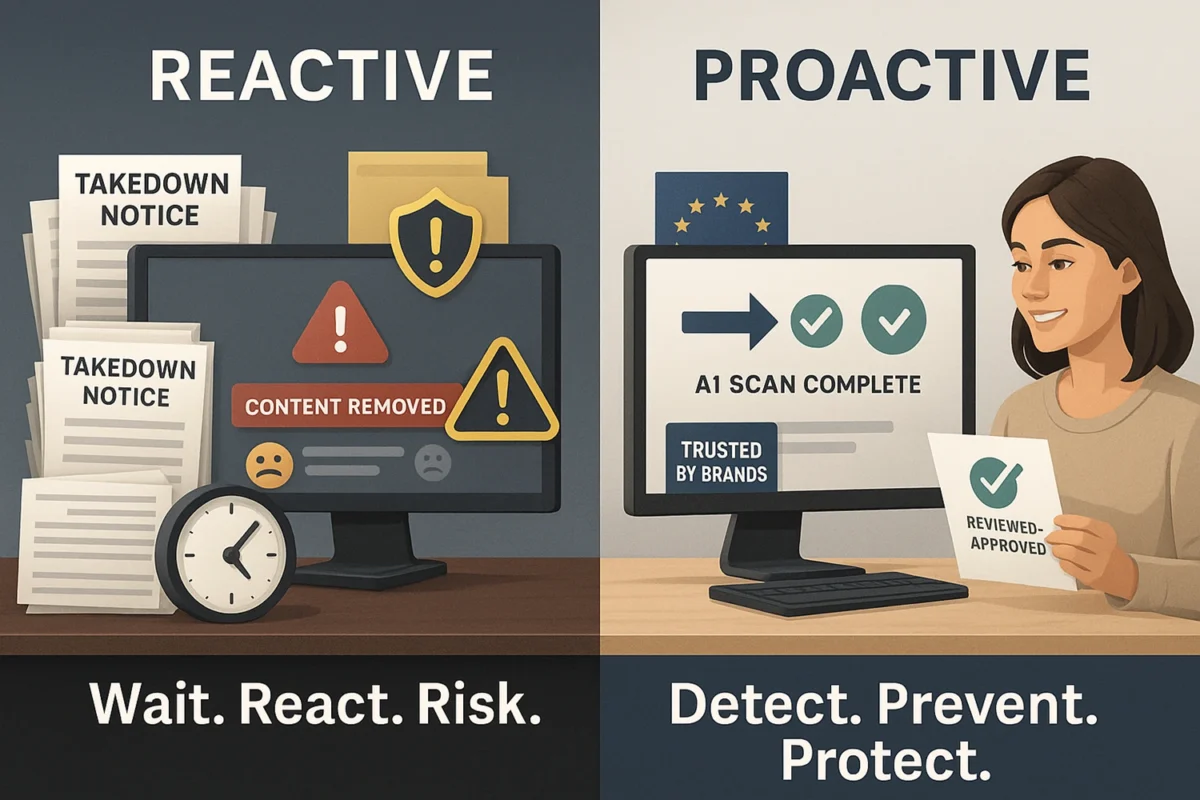Why “I Didn’t Know” Is Not a Defense – The Myth of Platform Neutrality
For platforms that host or monetize user-generated content, one phrase comes up over and over again:
“We didn’t know it was infringing. We’re just the platform.”
But courts are increasingly rejecting this excuse – especially when platforms print, fulfill, promote, or profit from infringing content.
In today’s legal landscape, ignorance is not a defense – and neutrality is a myth.
Here’s why platforms must stop relying on “we didn’t know” and start investing in proactive IP enforcement.
1. “I Didn’t Know” Doesn’t Shield You from Liability
Under the DMCA and similar frameworks, platforms can lose Safe Harbor protection if they:
- Had actual knowledge of infringement and didn’t act
- Had “red flag” knowledge (should have known) and didn’t act
- Engaged in willful blindness (chose not to look)
In other words – if infringement is obvious or easily detectable, courts expect platforms to act – even without a takedown notice.
Once a platform is “on notice,” the obligation to remove, disable, or prevent access kicks in fast.
2. Willful Blindness = Legal Knowledge
Willful blindness is when a platform intentionally avoids confirming what it suspects is true.
Examples include:
- Ignoring repeat reports about specific sellers
- Disabling detection systems during peak sale periods
- Allowing “borderline” fan art to flood the platform unchecked
- Looking the other way when viral designs clearly reference protected IP
Courts treat this as actual knowledge – meaning the Safe Harbor no longer applies.
In legal terms, choosing not to know is the same as knowing.
3. Algorithms That Boost Infringing Designs Create Risk
Many platforms rely on:
- Trending algorithms
- “Most popular” tags
- Automatic product recommendations
But if these systems highlight infringing listings, the platform becomes an active participant in the distribution – not just a passive host.
When you promote the infringement, you own the risk.
Especially dangerous combinations:
- A platform that boosts content via algorithm
- That same content includes unlicensed IP
- The platform profits from clicks, views, or conversions
This can lead to claims of vicarious liability, even without uploading anything.
4. Profit = Participation
Even if a platform didn’t create the design, courts have held that it shares responsibility when:
- It fulfills and ships the product
- It processes the payment
- It takes a cut of the revenue
- It monetizes the traffic through ads or partnerships
“We’re just a tech platform” doesn’t hold up if you’re also a storefront, a printer, a shippable product provider, and a revenue partner.
Legal trend: the more integrated your business is with the user’s listing, the less neutral you are – and the more responsible you become.
5. Infringio: The Proactive Alternative to Playing Dumb
If you want to stay out of court, you can’t rely on ignorance. You need:
- Scalable, pre-upload screening
- Context-aware visual detection
- Alerts that go beyond logos and keywords
- Triage systems to catch “borderline” designs
VISUA’s Infringio helps platforms:
- Detect infringement before it’s live
- Flag high-risk content based on context, not just similarity
- Reduce red flag exposure by showing active good-faith enforcement
- Prove they’re not blind to risk – they’re solving it
Proactive defense is no longer optional – it’s the cost of platform credibility.
Conclusion: Neutrality Is a Legal Fiction
You can’t print the product, take the money, run the ads – and claim to be “just a platform.”
If you’re enabling, profiting from, or ignoring infringement, you’re liable.
What courts want to see:
- Proactive systems
- Repeat infringer enforcement
- Intelligent moderation
- Evidence that your platform isn’t looking the other way
With tools like Infringio, POD and UGC platforms can scale without gambling on ignorance.
Want to replace “we didn’t know” with “we did something”? Book a demo with VISUA today to see how Infringio works.
Disclaimer: Not Legal Advice
This content is provided for informational purposes only and does not constitute legal or professional advice. The information reflects our understanding as of the date of publication and may not apply to every situation or jurisdiction. You should consult qualified legal counsel for advice tailored to your specific circumstances. Any actions taken based on this content are at your own risk. Neither VISUA nor its affiliates accept liability for any losses or damages arising from the use of this information.
Book A DemoRELATED
Redbubble, Teespring, and the Lessons of IP Enforcement Failures
Reading Time: 3 minutesPrint-on-demand (POD) platforms empower creators to design and sell products without holding inventory. But with that power…
BlogHow AI Is Changing the Game in IP Enforcement
Reading Time: 2 minutesIP enforcement used to be simple: But today’s infringement landscape – especially for POD and UGC-heavy platforms…
BlogThe Future of IP Compliance – Proactive vs. Reactive Models
Reading Time: 2 minutesFor years, most platforms treated IP compliance as a reactive function: But the market – and the…
Blog


